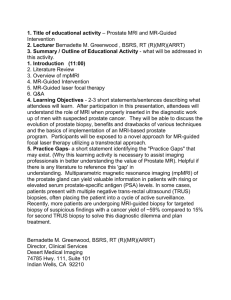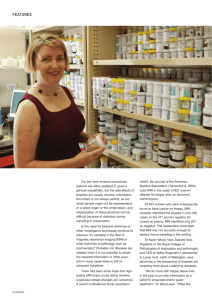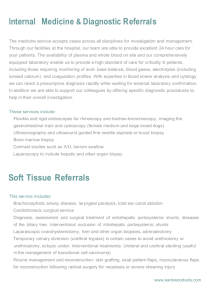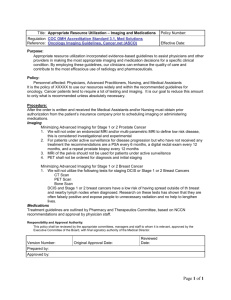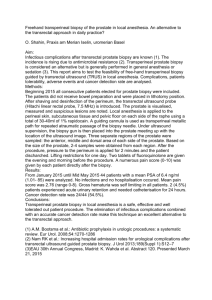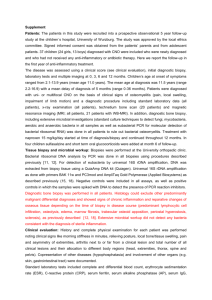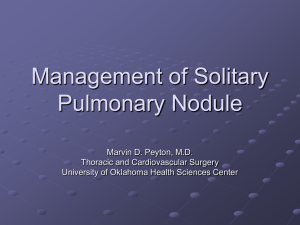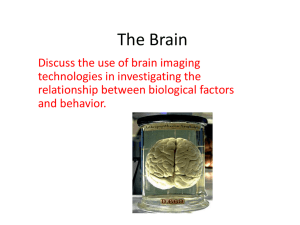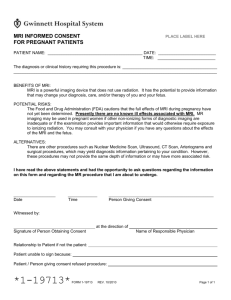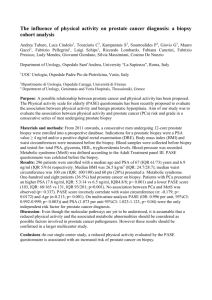Defining the Learning Curve for multi-parametric MRI of the
advertisement
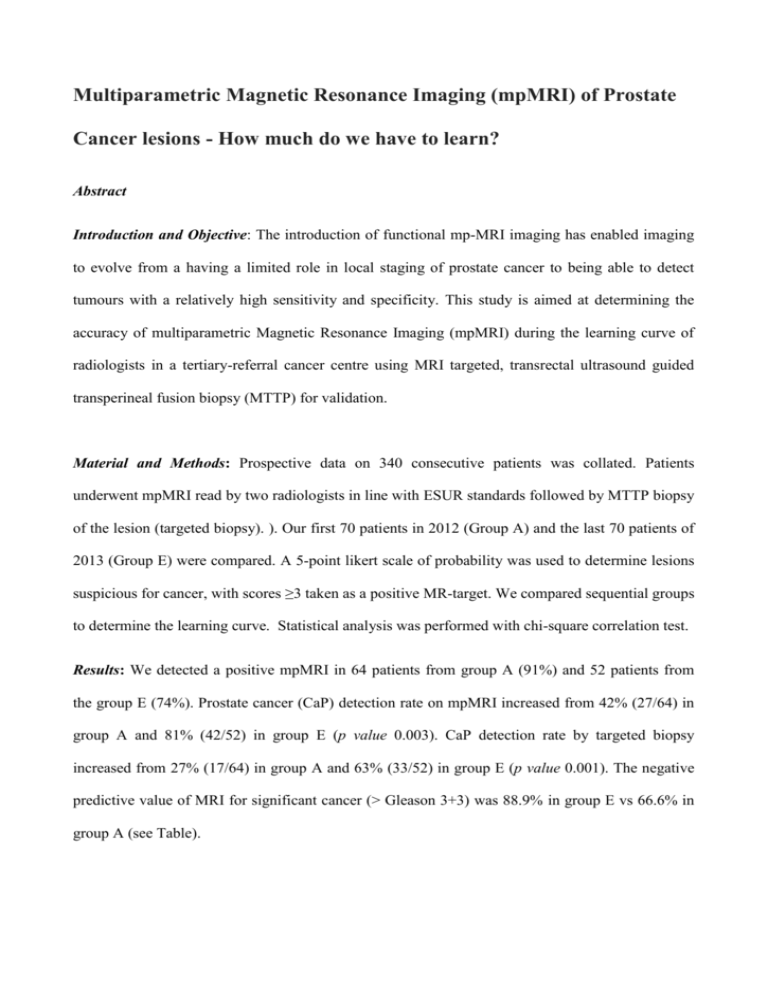
Multiparametric Magnetic Resonance Imaging (mpMRI) of Prostate Cancer lesions - How much do we have to learn? Abstract Introduction and Objective: The introduction of functional mp-MRI imaging has enabled imaging to evolve from a having a limited role in local staging of prostate cancer to being able to detect tumours with a relatively high sensitivity and specificity. This study is aimed at determining the accuracy of multiparametric Magnetic Resonance Imaging (mpMRI) during the learning curve of radiologists in a tertiary-referral cancer centre using MRI targeted, transrectal ultrasound guided transperineal fusion biopsy (MTTP) for validation. Material and Methods: Prospective data on 340 consecutive patients was collated. Patients underwent mpMRI read by two radiologists in line with ESUR standards followed by MTTP biopsy of the lesion (targeted biopsy). ). Our first 70 patients in 2012 (Group A) and the last 70 patients of 2013 (Group E) were compared. A 5-point likert scale of probability was used to determine lesions suspicious for cancer, with scores ≥3 taken as a positive MR-target. We compared sequential groups to determine the learning curve. Statistical analysis was performed with chi-square correlation test. Results: We detected a positive mpMRI in 64 patients from group A (91%) and 52 patients from the group E (74%). Prostate cancer (CaP) detection rate on mpMRI increased from 42% (27/64) in group A and 81% (42/52) in group E (p value 0.003). CaP detection rate by targeted biopsy increased from 27% (17/64) in group A and 63% (33/52) in group E (p value 0.001). The negative predictive value of MRI for significant cancer (> Gleason 3+3) was 88.9% in group E vs 66.6% in group A (see Table). Conclusions: We demonstrate an improvement in detection of CaP for MRI reporting over time, suggesting a learning curve for the technique. Despite an improved negative predictive value for significant cancer, this did not reach a level whereby biopsy can be avoided in MR negative cases.
